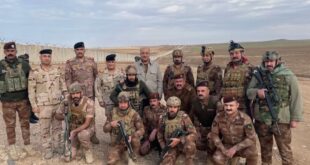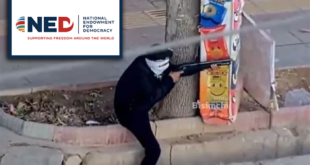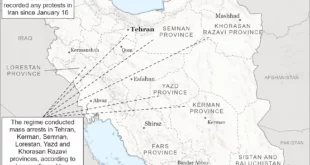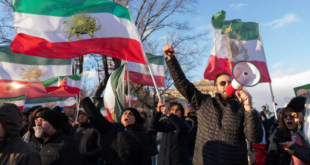 Israel is considering easing criteria for freeing Palestinian prisoners, a move one Israeli official said on Monday could pave the way for the release of Palestinian leader Marwan Barghouthi.Israel’s deputy defense minister, Matan Vilnai, said Barghouthi, a Palestinian uprising leader from Fatah and a possible successor to President Mahmoud Abbas, could be a candidate for release.
Israel is considering easing criteria for freeing Palestinian prisoners, a move one Israeli official said on Monday could pave the way for the release of Palestinian leader Marwan Barghouthi.Israel’s deputy defense minister, Matan Vilnai, said Barghouthi, a Palestinian uprising leader from Fatah and a possible successor to President Mahmoud Abbas, could be a candidate for release.
Also on Monday, a second round of peace talks between Israeli and Palestinian negotiating teams were bogged down in a dispute over settlement building near Jerusalem.
Palestinian negotiator Saeb Erekat said the U.S.-backed negotiations, the first in seven years, were “very difficult” because of Israel’s refusal to commit to halting all settlement activity as called for under the long-stalled “road map” peace plan.
“This is illegal,” Erekat told the Israelis.
Israeli negotiators said the road map calls on the Palestinians to rein in militants in the occupied West Bank and Hamas-controlled Gaza Strip as a condition for establishing a Palestinian state.
Israeli Prime Minister Ehud Olmert and Abbas will meet later this week to try to salvage talks launched at a peace conference in Annapolis, Maryland last month. They set the goal of reaching a statehood deal before U.S. President George W. Bush leaves office in January 2009.
Bush will visit the region early next month.
Ahead of Monday’s session, Israeli ministers met to consider relaxing Israel’s criteria for releasing Palestinian prisoners. The ministers were unable to reach any agreement.
Easing Israeli restrictions on releasing prisoners with so-called “blood on their hands”, a reference to attacks against Israelis, was part of efforts to secure a swap deal with Hamas for captured Israeli soldier Gilad Shalit.
“Up to now, our hands have been tied. This will open the door for additional prisoner releases for Abbas,” a senior Israeli official said, on condition of anonymity.
But Israel’s Shin Bet intelligence agency opposed the changes and the closed-door meeting ended without any decisions.
Hamas seized Gaza in June after routing Abbas’s Fatah forces. Hamas official Fawzi Barhoum said there was no movement towards a deal on Shalit, captured by militants in June 2006.
RARE CRITICISM
The first round of peace talks following Annapolis opened in discord on December 12 with Abbas demanding Israel drop plans to build some 300 new homes in an area near Jerusalem known to Israelis as Har Homa and to Palestinians as Abu Ghneim.
The settlement building plan has drawn rare criticism from the United States, as well as the European Union, saying it could undermine Israeli-Palestinian peace efforts.
On the eve of Monday’s negotiations, Israel’s Construction Ministry unveiled a proposal to build 500 homes in Har Homa and 240 in the Maale Adumim settlement near Jerusalem next year.
The building of Har Homa is seen by the Palestinians as the last rampart in a wall of settlements encircling Arab East Jerusalem, cutting it off from Bethlehem and the West Bank. Palestinians say it is a strategic move by Israel to pre-empt any possibility of East Jerusalem becoming the Palestinian capital.
“You have to choose between the track of peace and negotiations, or the track of settlements. You can’t have both,” chief Palestinian negotiator Ahmed Qurie told his Israeli counterpart, Foreign Minister Tzipi Livni, Erekat said.
Livni’s spokesman, Arye Mekel, said Israel told the Palestinians “they need to carry out their public commitments on security”.
In addition to asking the Palestinians to rein in militants, the road map explicitly calls for a halt to all settlement activity, including so-called “natural growth”.
Prime Minister Ehud Olmert’s spokesman, Mark Regev, said Israel would be in compliance with these obligations by not allowing “outward growth” of existing settlements, by preventing new settlements from being built, and by not confiscating any more Palestinian land.
But Israel told the Palestinians it will allow construction within built-up areas of existing settlements.
 Eurasia Press & News
Eurasia Press & News



